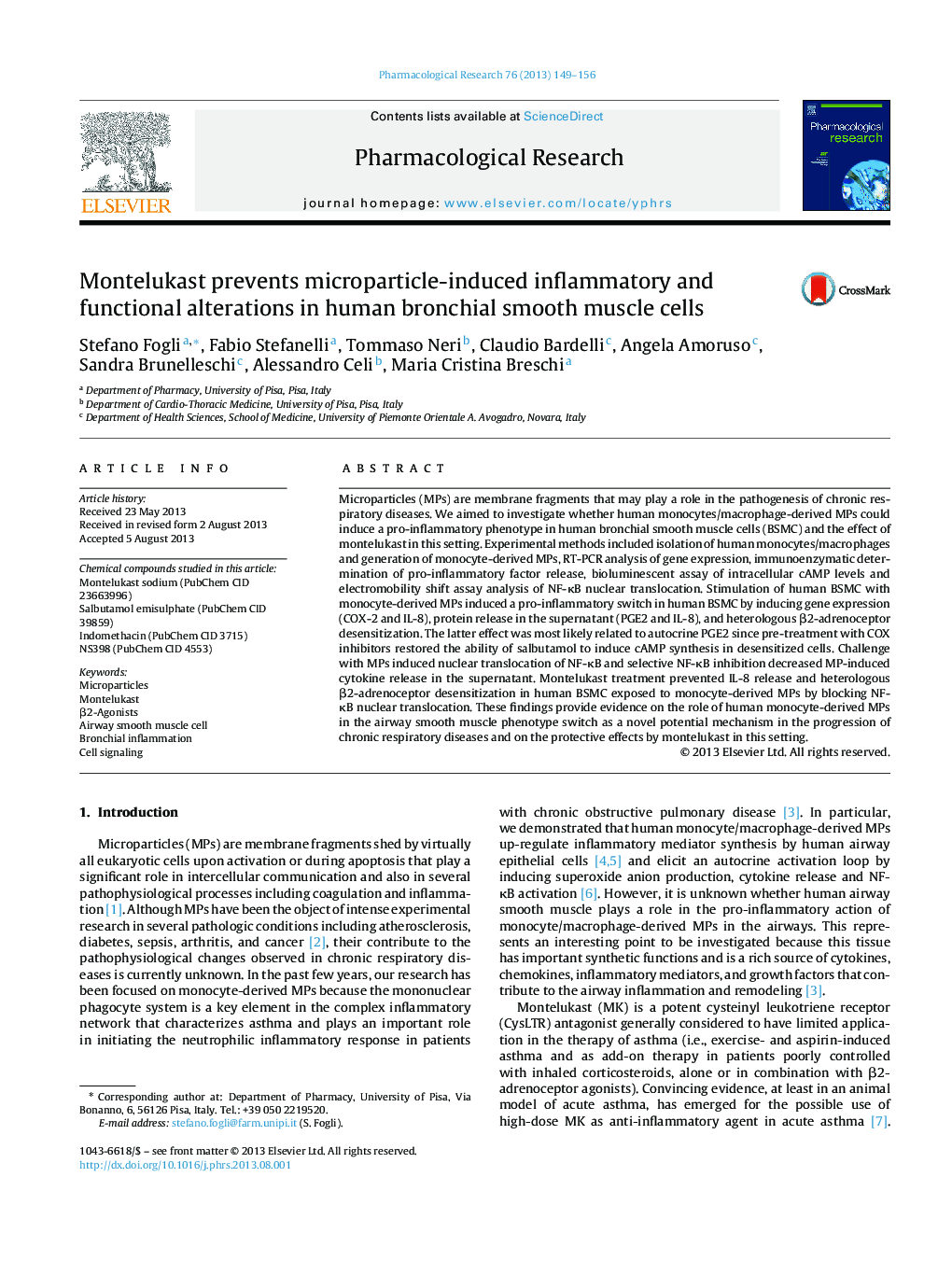| Article ID | Journal | Published Year | Pages | File Type |
|---|---|---|---|---|
| 5843246 | Pharmacological Research | 2013 | 8 Pages |
Microparticles (MPs) are membrane fragments that may play a role in the pathogenesis of chronic respiratory diseases. We aimed to investigate whether human monocytes/macrophage-derived MPs could induce a pro-inflammatory phenotype in human bronchial smooth muscle cells (BSMC) and the effect of montelukast in this setting. Experimental methods included isolation of human monocytes/macrophages and generation of monocyte-derived MPs, RT-PCR analysis of gene expression, immunoenzymatic determination of pro-inflammatory factor release, bioluminescent assay of intracellular cAMP levels and electromobility shift assay analysis of NF-κB nuclear translocation. Stimulation of human BSMC with monocyte-derived MPs induced a pro-inflammatory switch in human BSMC by inducing gene expression (COX-2 and IL-8), protein release in the supernatant (PGE2 and IL-8), and heterologous β2-adrenoceptor desensitization. The latter effect was most likely related to autocrine PGE2 since pre-treatment with COX inhibitors restored the ability of salbutamol to induce cAMP synthesis in desensitized cells. Challenge with MPs induced nuclear translocation of NF-κB and selective NF-κB inhibition decreased MP-induced cytokine release in the supernatant. Montelukast treatment prevented IL-8 release and heterologous β2-adrenoceptor desensitization in human BSMC exposed to monocyte-derived MPs by blocking NF-κB nuclear translocation. These findings provide evidence on the role of human monocyte-derived MPs in the airway smooth muscle phenotype switch as a novel potential mechanism in the progression of chronic respiratory diseases and on the protective effects by montelukast in this setting.
